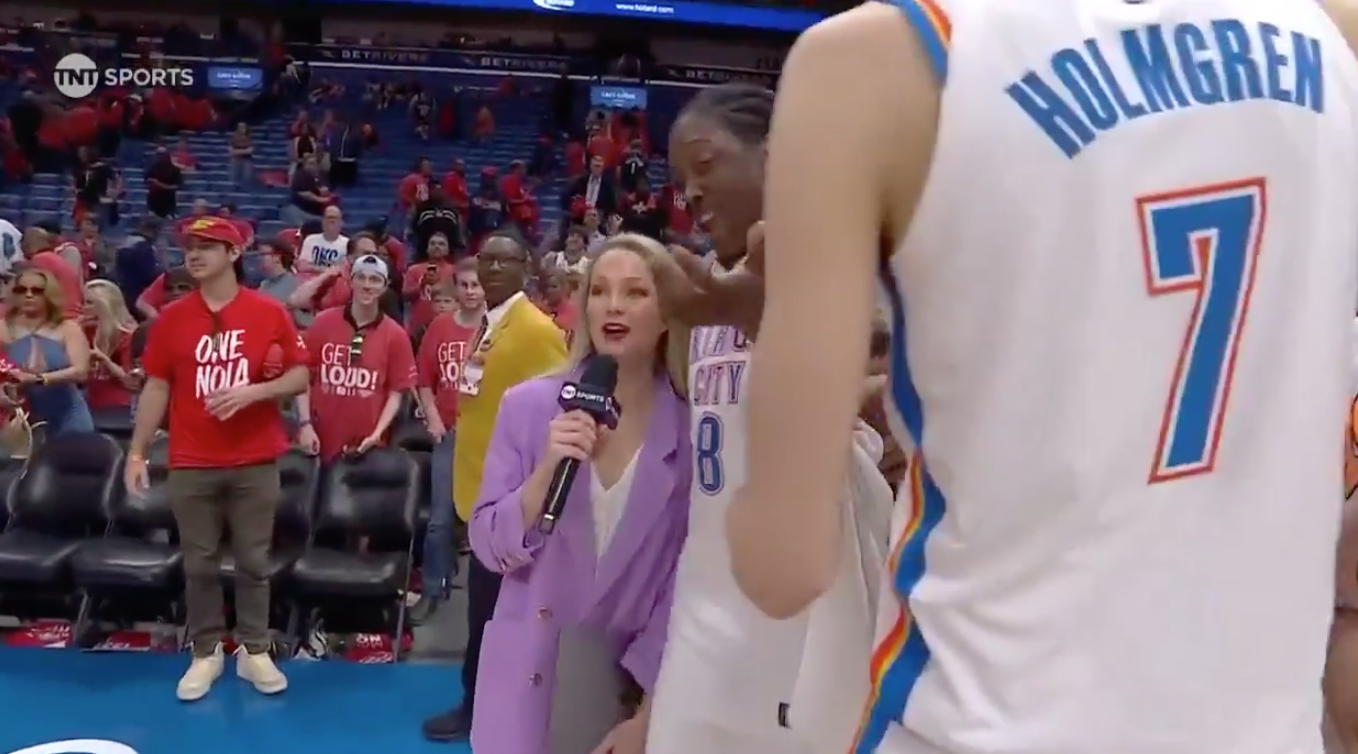As one might expect for its final show before the Super Bowl, Friday’s episode of ESPN’s First Take was jam-packed. It included in-person interviews with Cam Newton, Myles Garrett, Taylor Lewan and Will Compton.
But as Molly Qerim did her best to keep the tight schedule moving, Stephen A. Smith prevented the show’s host from ending a segment so that he could make a point to criticize the one NFL MVP voter who didn’t give Lamar Jackson his first-place vote.
“People talk about how sportswriters shouldn’t be voting. That was a stupid homer vote by that individual, probably scared to go back in the locker room if he had voted against Josh Allen,” Smith said. “That compromises everything. You have to be objective when you have a vote. And that writer — I don’t know who the hell it was — but that’s an embarrassment.”
Stephen A. Smith calls out the one voter who didn't give Lamar Jackson a first-place MVP vote.
"That was a stupid homer vote by that individual, probably scared to go back in the locker room if he had voted against Josh Allen. That compromises everything. You have to be… pic.twitter.com/nWUnofubKn
— Awful Announcing (@awfulannouncing) February 9, 2024
Smith was right about one thing: he didn’t know who the hell had the audacity to not give Jackson his first-place vote. Because if he had looked any further into the matter, he would have found that it wasn’t a Buffalo Bills beat writer who gave Josh Allen his first-place vote in place of Jackson. Instead, it was FTN Fantasy’s Aaron Schatz.
For the uninitiated, Schatz was the founder of the advanced analytics website Football Outsiders (which formerly had an extensive partnership with ESPN). He remained there until last summer when he left for FTN Fantasy amidst plenty of discussion of Football Outsiders’ owners not paying their bills. He invented the widely used DVOA (Defense-Adjusted Value Over Average) statistic and is considered a leader in the advanced analytics community.
Perhaps most pertinent to this conversation, Schatz also has no known ties to Buffalo, the Bills, or Josh Allen. And he’s also not a hot-take artist.
Sure, Schatz’s analytics background might give him a different perspective than most traditional media members. But by and large, any dissenting views of his are often supported with evidence, often in the form of data.
Such was the case when he published his reasoning for giving his first-team All-Pro vote to Allen over Jackson, which proved to be a precursor to his polarizing MVP vote. In a column explaining the choice, Schatz boiled his explanation down to: “I trusted my numbers and my gut over going with the crowd just to avoid controversy.”
(Schatz also published his full awards ballot here, although the discussion of Allen vs. Jackson largely links back to his All-Pro pick.)
If anything, the fact that Schatz’s ballot — in which he did vote for Jackson third — has become a point of contention should tell you everything you need to know about the state of NFL MVP voting. While Jackson certainly had an MVP-caliber season, he didn’t become the betting favorite for the award until after the Ravens’ Week 16 win over the 49ers — hardly indicative of the type of dominance reserved for the rare unanimous MVP selection.
I fully expected Jackson to win the award and didn’t even anticipate a competitive vote. But I was also surprised to learn that Jackson received 49 of the 50 first-place votes and that Christian McCaffrey, Brock Purdy, Dak Prescott, and Allen didn’t gain more traction among voters.
But considering that betting odds often give away who the winner will be before votes are even cast — Jackson was a -20000 favorite by the end of the regular season — it stands to reason that voters would be wary of going against the grain. In many ways, that makes the award somewhat of a self-fulfilling prophecy, as oddsmakers anticipate which narrative will entice the most voters, with the rest now seemingly following suit.
You can agree or disagree with Schatz’s rationale, but the whole point of having 50 different voters is to — ideally — get 50 different perspectives. Instead what we now have are awards largely based on groupthink, with most voters merely selecting the best-performing quarterback among the league’s top teams.
That’s not to invalidate Jackson’s award by any means (if I had a vote, I probably would have voted for him). Schatz, however, deserves credit for fulfilling his responsibility as a voter and making his pick based on his own perspective — not everyone else’s.







